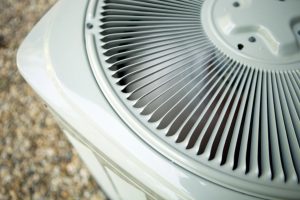 Summer seems to start earlier and earlier every year in our neck of the woods, and even in early May, chances are you’ve needed to run your air conditioner a few times this year already. If your system needs any repairs, now is the perfect time to spot them. In fact, the earlier you can notice problems with your air conditioner, the better. The next time you run your system, watch and listen for signs of trouble, and call in a quality repair service the moment you do.
Summer seems to start earlier and earlier every year in our neck of the woods, and even in early May, chances are you’ve needed to run your air conditioner a few times this year already. If your system needs any repairs, now is the perfect time to spot them. In fact, the earlier you can notice problems with your air conditioner, the better. The next time you run your system, watch and listen for signs of trouble, and call in a quality repair service the moment you do.
Why Now?
There are two very good reasons to check for signs of trouble now.
First, the earlier you spot a repair issue, the less expensive it tends to be. The damage hasn’t had as much time to spread, and the system won’t be under as much strain now – when temperatures are comparatively cool – than they will be later in the summer.
Second, spotting the issue now means you can schedule repairs to deal with it at your leisure. Contrast that with suffering a breakdown later in the summer, when you need to move as swiftly as possible before your home turns into an oven.
Signs to Watch for
So what specific signs should you watch for? It pays to stick with basic signs. No one should formally attempt to diagnose a problem with their air conditioner without formal training and licensing (much less attempt repairs). But in all likelihood, you’ve become subconsciously aware of the functioning of your air conditioner when it turns on, and anything out of the ordinary tends to stick out like a sore thumb.
There are a number of common signs of trouble for your air conditioner that recur across multiple issues. If you spot them, it’s usually a good idea to turn off your air conditioner immediately and call in a repair service. They can include, but are not limited to, the following:
- Strange Noises. A number of issues can quickly be identified simply because they make a noise that doesn’t match the normal functions of your air conditioner. Strange noises can include anything from groans to whistles to rattles and clanks. They are usually centered in the air conditioning unit itself, but sometimes sounds can echo through the ducts, or even originate in the ducts themselves (as they might in the event of a breach or leak). In most cases, they will start and stop with the starting and stopping of the air conditioner.
- Low Air Flow. Low air flow can be spotted by monitoring the flow of air from your vent. If the flow drops, you’re looking at either a blockage or a problem with the fan apparatus.
- Low Cooling Levels. Leaking refrigerant can raise the temperature of the conditioned air, forcing the system to work harder than it should. So can overheating components or leaks in the ducts.
- Short Cycling. Short cycling is the process of the air conditioner turning on and off rapidly multiple times throughout the day.
For air conditioning repair in Tampa, FL, call The A/C Guy of Tampa Bay, Inc.

